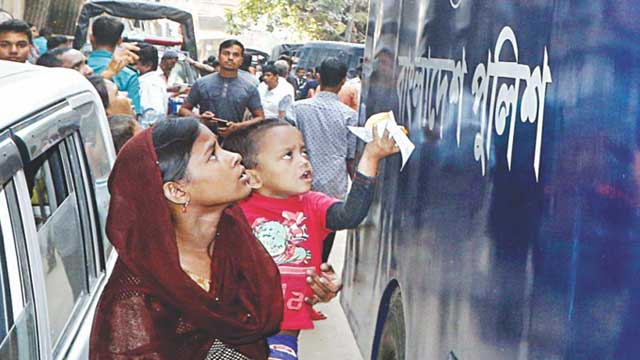Human Rights Watch on Tuesday said Bangladesh should implement the recommendations made by the UN Committee Against Torture to end the widespread practice of torture in the country.
The committee’s first review of Bangladesh under the Convention against Torture and Other Cruel, Inhuman or Degrading Treatment or Punishment began in Geneva on Monday and it would continue till August 8.
Bangladeshi security forces are seldom held accountable for torture and other ill-treatment of people in custody. Instead, authorities have cracked down on rights groups, activists, and journalists for exposing these violations, HRW said in a release issued from Geneva.
Bangladesh, for the first time, agreed to come under the committee review since ratifying the convention 20 years ago, by submitting its long-overdue state report on measures taken to uphold its commitments under the treaty.
The government claimed that it already undertook measures to improve the responses from the authorities and bodies responsible for promotion and protection of human rights and also the quality of access to justice for the victims of torture.
Bangladesh’s appearance before the UN committee is an important opportunity to acknowledge ‘the endemic use of torture by the country’s security forces,’ said Human Rights Watch Asian director. ‘The government should adopt the committee’s recommendations, enforce existing laws against torture, and send a clear message to security forces that it’s serious about eradicating torture.’
Human Rights Watch documented widespread torture by Bangladesh security forces, including beating detainees with iron rods, belts, and sticks, subjecting detainees to electric shocks, waterboarding, hanging detainees from ceilings and beating them, and deliberately shooting detainees, typically in the lower leg, described as ‘kneecapping’. Authorities routinely claim that these victims were shot in self-defense, in ‘crossfire’, or during violent protests.
In 2013, the government passed the Torture and Custodial Death (Prevention) Act but very few cases were filed under the act and not a single case was completed. Investigations by rights organisations suggest that authorities continued routinely torturing people in custody, the statement said.
Since the passage of the law, there have been 160 documented cases of torture. The actual number is likely much higher, it said.
In its report submitted to the committee, the government outlined its commitments under domestic and international law to protect against forced confessions, including that a magistrate must explain to the accused that they are ‘not bound to make a confession, and that if he does so it may be used as evidence against him. Moreover, a Magistrate should not record any such confession unless he has reason to believe that it is being made voluntarily.’





